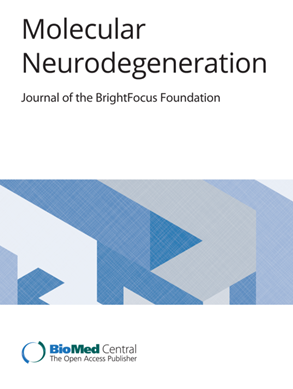Melatonin: a ferroptosis inhibitor with potential therapeutic efficacy for the post-COVID-19 trajectory of accelerated brain aging and neurodegeneration
IF 14.9
1区 医学
Q1 NEUROSCIENCES
引用次数: 0
Abstract
The unprecedented pandemic of COVID-19 swept millions of lives in a short period, yet its menace continues among its survivors in the form of post-COVID syndrome. An exponentially growing number of COVID-19 survivors suffer from cognitive impairment, with compelling evidence of a trajectory of accelerated aging and neurodegeneration. The novel and enigmatic nature of this yet-to-unfold pathology demands extensive research seeking answers for both the molecular underpinnings and potential therapeutic targets. Ferroptosis, an iron-dependent cell death, is a strongly proposed underlying mechanism in post-COVID-19 aging and neurodegeneration discourse. COVID-19 incites neuroinflammation, iron dysregulation, reactive oxygen species (ROS) accumulation, antioxidant system repression, renin-angiotensin system (RAS) disruption, and clock gene alteration. These events pave the way for ferroptosis, which shows its signature in COVID-19, premature aging, and neurodegenerative disorders. In the search for a treatment, melatonin shines as a promising ferroptosis inhibitor with its repeatedly reported safety and tolerability. According to various studies, melatonin has proven efficacy in attenuating the severity of certain COVID-19 manifestations, validating its reputation as an anti-viral compound. Melatonin has well-documented anti-aging properties and combating neurodegenerative-related pathologies. Melatonin can block the leading events of ferroptosis since it is an efficient anti-inflammatory, iron chelator, antioxidant, angiotensin II antagonist, and clock gene regulator. Therefore, we propose ferroptosis as the culprit behind the post-COVID-19 trajectory of aging and neurodegeneration and melatonin, a well-fitting ferroptosis inhibitor, as a potential treatment.褪黑素:一种具有潜在疗效的铁氧化酶抑制剂,可用于治疗后 COVID-19 期间加速大脑衰老和神经变性的病症
史无前例的 COVID-19 大流行在短时间内席卷了数百万人的生命,但其威胁仍以后 COVID 综合征的形式在幸存者中持续存在。越来越多的 COVID-19 幸存者患有认知障碍,有令人信服的证据表明他们的衰老和神经变性正在加速。这种尚未见分晓的病理现象既新颖又神秘,需要进行广泛的研究,以寻求分子基础和潜在治疗靶点的答案。COVID-19后衰老和神经退行性病变论述中强烈建议的一个基本机制是铁凋亡(一种铁依赖性细胞死亡)。COVID-19 引发了神经炎症、铁失调、活性氧(ROS)积累、抗氧化系统抑制、肾素-血管紧张素系统(RAS)破坏和时钟基因改变。这些事件为铁变态反应铺平了道路,而铁变态反应在 COVID-19、早衰和神经退行性疾病中显示出其特征。在寻找治疗方法的过程中,褪黑激素以其反复报道的安全性和耐受性成为一种很有前景的铁褪蛋白抑制剂。多项研究表明,褪黑素可有效减轻 COVID-19 某些表现的严重程度,这也验证了褪黑素作为抗病毒化合物的声誉。褪黑素具有抗衰老和抗神经退行性病变的特性,这一点已得到充分证实。褪黑素是一种高效的抗炎剂、铁螯合剂、抗氧化剂、血管紧张素 II 拮抗剂和时钟基因调节剂,因此它可以阻断铁褪形成的前导过程。因此,我们认为铁蜕变是导致 COVID-19 后衰老和神经退行性病变的罪魁祸首,而褪黑激素是一种合适的铁蜕变抑制剂,是一种潜在的治疗方法。
本文章由计算机程序翻译,如有差异,请以英文原文为准。
求助全文
约1分钟内获得全文
求助全文
来源期刊

Molecular Neurodegeneration
医学-神经科学
CiteScore
23.00
自引率
4.60%
发文量
78
审稿时长
6-12 weeks
期刊介绍:
Molecular Neurodegeneration, an open-access, peer-reviewed journal, comprehensively covers neurodegeneration research at the molecular and cellular levels.
Neurodegenerative diseases, such as Alzheimer's, Parkinson's, Huntington's, and prion diseases, fall under its purview. These disorders, often linked to advanced aging and characterized by varying degrees of dementia, pose a significant public health concern with the growing aging population. Recent strides in understanding the molecular and cellular mechanisms of these neurodegenerative disorders offer valuable insights into their pathogenesis.
 求助内容:
求助内容: 应助结果提醒方式:
应助结果提醒方式:


